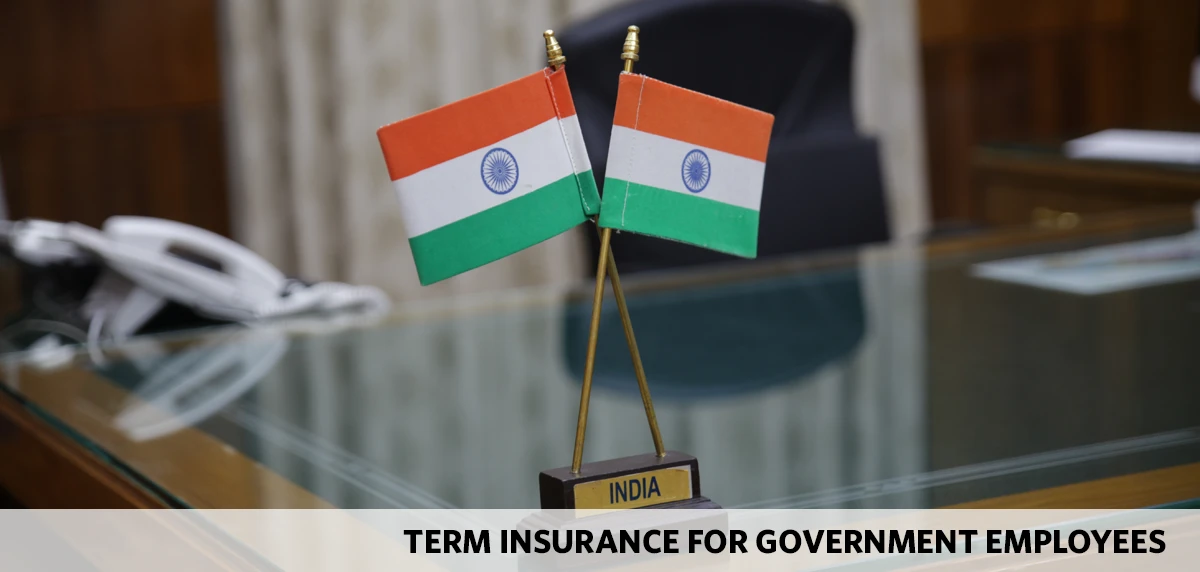Term insurance is an essential financial tool providing coverage for a specified period, ensuring financial security for your loved ones in case of an untimely demise. For Non-Resident Indians (NRIs), understanding and acquiring term insurance can offer peace of mind and financial stability to their families back home.
Let’s delve into the specifics of term insurance for NRIs, including its benefits, eligibility, and the process of purchasing a policy.
What is Term Insurance?
It is a type of life insurance offering coverage for a particular term or period. If the policyholder passes away during the policy term, the beneficiary receives a death benefit. Unlike other life insurance policies, term insurance usually does not have a savings component. A level term plan is purely protection-oriented. However, if you are looking for more out of your policy without affecting the costs drastically, you can look at term insurance with return of premium option, or other subtypes.
How do Term Insurance Plans for NRIs Work?
A term insurance plan for NRIs functions on the same fundamental principle as it does for residents: it provides a pure life cover.
- You select a policy term and a sum assured (e.g., a ₹2 crore term insurance cover). In return, you pay regular premiums to keep the policy active.
- If the unfortunate event of the policyholder's demise occurs during the policy term, the insurance company pays the full sum assured (tax-free) to the nominated beneficiaries in India.
- This payout ensures your family's financial stability. It covers living expenses, loans, and future goals.
- The entire process, from purchasing the term life insurance policy to managing it and filing claims, can be managed from overseas as well. This makes term life insurance for an NRI a seamless way to secure your family's future back home.
Why NRIs Should Consider Term Insurance
Buying term plans, or any other sort of life insurance for NRIs, may not be the same as buying these policies for resident Indians. However, the benefits that it may offer your family back home could be well worth the money you put into it.
Here are some of the reasons why NRIs should consider getting term insurance coverage for themselves.
Financial Security for Family
One of the primary reasons to buy term life insurance for an NRI is to provide financial security to their families. In the event of the policyholder's death, the term insurance payout can help cover daily expenses, debts, and future financial needs such as children's education and marriage.
Affordable Premiums
Term insurance plans are known for their affordability. NRIs can avail themselves of substantial coverage at relatively low premium rates. This makes it an attractive option for those looking to secure their family's financial future without straining their budget.
Tax Benefits**
Term insurance for NRIs also comes with tax benefits under Indian tax laws. Premiums paid for term insurance policies may be eligible for deductions under Section 80C of the Income Tax Act, thereby reducing the overall tax liability.
Easy to Manage
Term life insurance plans do not need additional management to begin with. To add to this, having a life cover back home even when you reside outside the country can make some processes much easier, especially if you have family back home. Your nominee can take care of the claim process easily if the policy is based in India.
Eligibility Criteria for NRIs
To purchase term insurance for, NRIs, one needs to meet specific eligibility criteria. These criteria may vary from one insurance provider to another, but generally include:
- Age: The policyholder should typically be between 18 years and 65 years old.
- Medical Examination: Some insurers may require a medical examination to assess the applicant's health condition.
- Residential Status: Proof of NRI status is required, which can be established through documents like a valid passport, visa, and overseas address proof.
Riders: Term Insurance for NRIs
You can enhance the coverage of your term life insurance for an NRI by adding optional riders. Key riders to consider include:
Accidental Death Benefit Rider
Provides an additional, separate payout to your nominees if your death occurs as a direct result of an accident. This benefit is paid over and above, to help increase the total financial support for your family.
Waiver of Premium Rider
If you become permanently disabled due to an accident or sickness, this rider waives all future premiums for your policy. Your term insurance policy for NRIs continues uninterrupted, with the full sum assured remaining active. This ensures your family's protection remains intact even if you cannot pay the premiums.
Accidental Total and Permanent Disability (TPD) Rider
Provides a lump sum payment if an accident results in a total and permanent disability. It can help you manage new living expenses and adjustments.
How to Buy Term Insurance for NRIs
Purchasing term insurance for NRIs involves a straightforward process. Here are the steps:
Step 1. Determine Coverage Amount
Assess your financial needs and determine the coverage amount required to secure your family’s future. Consider factors such as outstanding loans, future education expenses, and daily living costs.
Step 2. Compare Term Insurance Plans
Research and compare various term insurance plans offered by different insurers. Look for policies that provide comprehensive coverage at competitive premium rates. Use online tools such as a term insurance calculator to estimate the premium based on the coverage amount and policy term.
Step 3. Choose the Policy Term
Select an appropriate policy term based on your age and financial goals. Typically, the policy term should cover the years during which your dependents rely on your income.
Step 4. Complete the Application
Fill out the application form accurately, providing all necessary personal and financial details. Be honest about your medical history and lifestyle habits, as any discrepancies can lead to claim rejections in the future.
Step 5. Submit Required Documents
Submit the required documents, including proof of identity, address, income, and NRI status. Some insurers may also ask for medical reports and a declaration of good health.
Step 6. Medical Examination
If required, undergo a medical examination at an uthorized medical Center. The insurer will bear the cost of the medical tests.
Step 7. Pay the Premium
Pay the initial premium to activate the policy. Most insurers offer flexible payment options, including online payments, direct debit, and international credit cards.
These steps may vary depending on a range of factors. You may consult your insurance provider or an insurance agent to get a better understanding of the same.
What are the Documents Required for NRI Term Insurance?
The documentation process for purchasing term insurance for NRIs is simple. It requires specific proofs to establish identity, NRI status, and financial standing.
- Proof of Identity & Age: A copy of your valid passport is mandatory. Some insurers may also accept an OCI/PIO card.
- Proof of NRI Status: This is established with copies of your valid visa, work permit, or resident card from your country of residence.
- Proof of Address: You will need to provide both your overseas address proof (like a utility bill or bank statement) and your permanent address in India.
- Proof of Income: Documents like salary slips, bank statements (for the last 3-6 months), or an employment contract may be required. This helps the insurer determine the eligibility for the sum assured, especially if you are seeking a high cover like a ₹2 crore term insurance plan.
- Completed Application Form: A duly filled and signed proposal form with your personal, medical, and lifestyle details.
- Medical Reports: Depending on your age, health declaration, or the chosen sum assured, the insurer may require a medical examination at their designated centre.
Having these documents ready can speed up the application process for your term life insurance for an NRI.
Key Features of Term Insurance for NRIs
Term insurance plans for NRIs come with several key features that make them a valuable financial product.
- High Sum Assured: Provides significant coverage to ensure financial security for your family.
- Flexible Premium Payment Options: Offers multiple premium payment modes and frequencies, such as annual, semi-annual, quarterly, and monthly.
- Policy Term Flexibility: Allows you to choose the policy term based on your financial planning needs.
- Rider Options: Enhances coverage with additional riders such as critical illness, accidental death, and waiver of premium.
- Global Coverage: Provides worldwide coverage, ensuring your family is protected regardless of where you reside.
Term insurance for NRIs is a crucial financial product ensuring the financial well-being of your family in your absence. By understanding the benefits, eligibility criteria, and purchasing process, NRIs can make informed decisions and choose the right term insurance plan to secure their family's future. With the right term insurance policy in place, you can achieve peace of mind knowing that your loved ones are financially protected.
FAQs
Can NRIs buy term insurance from any Indian life insurance company?
Most leading Indian insurers offer term insurance for NRIs. However, specific rules, premium amounts (especially for those in high-risk countries), and the list of supported countries can vary between companies. It is best to check with the insurer directly.
Is a medical examination mandatory for NRI applicants?
A medical exam is not always mandatory. It depends on factors like your age, the sum assured (e.g., it may be required for a best term plan for ₹1 crore or more), and your disclosed health history. The insurer may bear the cost of this examination.
How can I pay the premiums for my term life insurance for NRI?
You can pay the premiums for your NRI term plan in various ways, including online payments via NRE/NRO bank accounts, international credit/debit cards, and wire transfers. You can also use a term insurance premium calculator to get an idea of the cost involved and make arrangements for the payment.
























